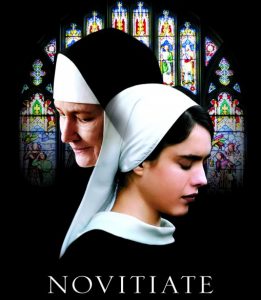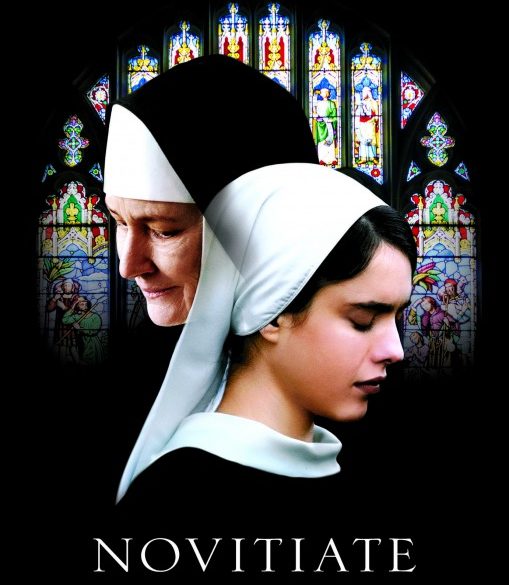Faith Reels is an occasional series of reviews of current films exploring the spiritual and religious themes in cinema
by Bonnie Anderson and Dan Webster
‘Novitiate’…in a changing church
Educated in a Roman Catholic girl’s school in Tennessee, Cathleen (Margaret Qualley) believes she’s been called to live her life as a nun, always in the quest to attain the perfect love of God. Much to the dismay of her agnostic mother (well acted by Julianne Nicholson), at age 17, Cathleen pursues her call and becomes a postulant in the cloistered order of the Sisters of the Blessed Rose. They are known as “The Roses”.
 The film takes place in 1964, two years after the convening of the Second Vatican Council (Vatican II). The news of change in the Church brought about by Pope John XXIII is slow to arrive at the convent of the Sisters of the Blessed Rose.
The film takes place in 1964, two years after the convening of the Second Vatican Council (Vatican II). The news of change in the Church brought about by Pope John XXIII is slow to arrive at the convent of the Sisters of the Blessed Rose.
Resistant to change, Reverend Mother Marie St. Claire (Melissa Leo) personifies all the sadistic and authoritarian qualities anyone has ever heard whispered about some of the women who were in this role at the time of Vatican II. The Reverend Mother tells the young women that whenever she speaks, she is speaking on behalf of God and to remember that as they’re trained in “a special kind of love.” The postulants are instructed not to ask questions, they’re to keep their eyes downcast, to obey both “regular” and “grand” silence. They’re psychologically humiliated and physically punished.
The harsh conditions of the convent could’ve been influenced by Jansenism. It was a heresy, eventually denounced by Rome, but took hold among monastics and in seminaries in the 17th century. Trappist monk, Fr. Thomas Keating writing in Open Mind, Open Heart, calls it a “pessimistic form of piety” which “deeply affected the psychological climate” of seminaries and religious orders well into the 20th century.
A visit from the Archbishop and a threat that she’ll be replaced, forces the Reverend Mother to announce the changes they must embrace. Although the film is fiction, in reality after the implementation of the changes instigated by Vatican II, 90,000 nuns renounced their orders and left their vocations.
The “Roses” postulants desperately seek God’s love. A dose of God Incarnate would’ve been a welcome relief for the young women. But the teachings are parsed out with both understatement and cruelty and while the word “love” is used often, the demonstration and actions of love, grace and gratitude by the nuns is largely non-existent.
Don’t let the historical mistakes distract you from this film. The vestments worn by the priests are clearly contemporary. And there were no container cars on railroad trains in the 1950s or 60s you’ll see in one scene. The lipstick, eyeliner, and mascara on the novices looks nice, but certainly distracts from the authenticity of the film.
The conflict around changes from Vatican II, though, still lives today. A Roman Catholic parish merger failed recently in Connecticut due to “a clash of cultures.” And most Anglo Catholic parishes in the Episcopal Church cling to pre-Vatican II liturgical practices if not theology.
We hope you see this excellent film written and directed by Maggie Bates. Watch for Melissa Leo to be recognized for her stellar performance, and while you’re at it, ask yourself the same questions that are posed to Cathleen after she makes the walk down the aisle to finally become a Bride of Christ. She is asked the defining questions, “What do you seek? What do you desire?”
—
Bonnie Anderson is the former president of the House of Deputies of the Episcopal Church General Convention and active lay leader in her parish. Dan Webster is a priest in the Diocese of Maryland and an associate of the Order of the Holy Cross. They occasionally write about film at “Faith Reels.”

